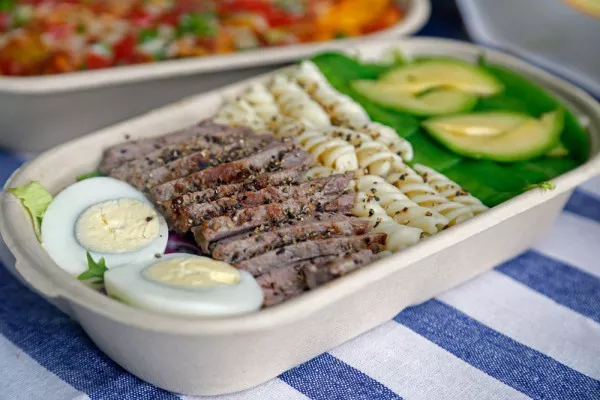Eating a diet of 1200 calories a day is a popular way to lose weight. While it’s important to consume enough calories to fuel your body, a calorie deficit is necessary to lose weight. A diet of 1200 calories a day can be a challenge, but it’s possible to eat healthy and satisfying meals with careful planning. In this article, we’ll explore what to eat for 1200 calories a day and provide some tips for creating a healthy meal plan.
What to Eat for 1200 Calories a Day
When creating a meal plan for 1200 calories a day, it’s important to focus on nutrient-dense foods that provide the nutrients your body needs without adding excessive calories. Here are some examples of foods to include in a 1200 calorie diet:
-
Protein
Protein is essential for building and repairing muscle tissue, and it can help keep you feeling full and satisfied. Good sources of protein include lean meats, poultry, fish, eggs, beans, and low-fat dairy products.
-
Vegetables
Vegetables are low in calories and high in fiber, making them a great choice for a low-calorie diet. Focus on eating a variety of colorful vegetables, such as leafy greens, peppers, carrots, and broccoli.
-
Fruits
Fruits are also low in calories and high in fiber, vitamins, and minerals. Choose whole fruits over fruit juice or canned fruit, which can be higher in sugar and calories.
-
Whole Grains
Whole grains are a good source of fiber and can help keep you feeling full. Choose whole grain bread, pasta, rice, and cereals instead of refined grains.
-
Healthy Fats
Healthy fats, such as those found in nuts, seeds, avocados, and fatty fish, can help promote satiety and provide important nutrients for overall health.
Example Meal Plan for 1200 Calories a Day
Here’s an example of a 1200 calorie meal plan:
Breakfast:
- 1 whole wheat English muffin with 1 tablespoon of peanut butter and sliced banana (320 calories)
Snack:
- 1 small apple with 1 ounce of almonds (170 calories)
Lunch:
- Grilled chicken breast with mixed greens, cherry tomatoes, and 1 tablespoon of olive oil and vinegar dressing (300 calories)
Snack:
- 1 small container of Greek yogurt with mixed berries (120 calories)
Dinner:
- Baked salmon with roasted sweet potato and steamed broccoli (290 calories)
Tips for Creating a Healthy 1200 Calorie Meal Plan
-
Plan Ahead
Planning your meals ahead of time can help you stick to your calorie goals and prevent unhealthy food choices. Create a shopping list and prepare your meals in advance to make healthy eating easier.
-
Focus on Nutrient-Dense Foods
Choose foods that are nutrient-dense and provide the most nutrients for the fewest calories. This can help you stay full and satisfied while staying within your calorie limit.
-
Avoid Processed Foods
Processed foods are often high in calories, sugar, and unhealthy fats. Focus on whole, minimally processed foods instead.
-
Monitor Portion Sizes
Even healthy foods can add up in calories if you eat too much. Use measuring cups or a food scale to monitor your portion sizes and stay within your calorie limit.
-
Listen to Your Body
Everyone’s body is different, so it’s important to listen to your body and adjust your meal plan as needed. If you’re feeling hungry or tired, add in some additional healthy snacks or increase your calorie intake slightly.
In conclusion, a diet of 1200 calories a day can be a challenge, but with careful planning and attention to nutrient-dense foods, it’s possible to create a healthy and satisfying meal plan. Focus on protein, vegetables, fruits, whole grains, and healthy fats to ensure that you’re getting all the nutrients your body needs without adding excessive calories.
It’s important to note that a 1200 calorie diet is not suitable for everyone, and it’s always a good idea to speak with a healthcare professional before starting any new diet or exercise plan. Additionally, if you have any medical conditions or dietary restrictions, such as diabetes or food allergies, you may need to modify this meal plan to meet your specific needs.
In summary, a 1200 calorie diet can be a healthy way to lose weight, but it requires careful planning and attention to nutrient-dense foods. By focusing on protein, vegetables, fruits, whole grains, and healthy fats, you can create a satisfying meal plan that will help you stay within your calorie goals while providing all the nutrients your body needs for optimal health. Remember to listen to your body and adjust your meal plan as needed to ensure that you’re getting enough calories and nutrients to support your health and well-being.


